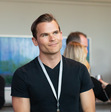Colin Robertson's Blog, page 5
March 23, 2016
How to Handle the 5 Types of Critical Feedback
Hitler would ADORE you!
My heart was pounding as I opened the email with that as the subject. It was the first email I received after posting my previous article explaining the psychology behind the love and hate of Donald Trump.
As I opened up the email, I saw all of the hate.
"You’re dangerous... You’re a Nazi... I’m sure Hitler would have loved to have you to justify him!"
My heart quickly sank. Then another email….
"Your logic is infantile...This is absolutely useless and you are dangerous!"
I sank even deeper. Why did I do this?
I knew I shouldn't have done anything in politics. Even if it was from my current research of fear and how it affects our willpower.At that moment I just wanted to take the article down. Clearly, I’d made a mistake and I needed to do some damage control.
But before I do that, I thought, let me engage these people in a dialogue. Maybe they’ll bring up some good points that I can use to improve the article.
So I responded to each of them asking why they felt how they did, explained my goal for the article, and asked how they believed I might be able to improve it.
The response…you’re a Nazi, you’re a narcissist, you’re a menace to society.
No suggestions, just more hate. Meanwhile, I was beginning to get a wide range of feedback from others. Some positive, some with follow-up questions, and some with real suggestions about how to improve it.
This was a great reminder of why you need to understand who is criticizing you.
Here are the 5 types of people who will give you critical feedback—with examples from real people who have given it to me.
1. TROLLSThe first type of feedback you will receive is from people who are best known as “Trolls.”
Trolls are people who feel better about themselves by bringing you down.
There is no reasoning with a Troll. They aren’t criticizing you because they disagree with your ideas, nor because they really want you to improve. They are doing it simply because it makes them feel better. [1]
You can find Trolls in real life who may criticize you, but they are most prevalent on the Internet. Online they can hide behind a computer screen. They don’t need to deal with the vulnerability of confronting you in person. They can simply criticize and move on to someone else.
EXAMPLE OF A TROLL“This article is bullshit and you’re a terrible writer. Any one of these other people commenting could write better than you. Keep practicing…it clearly isn’t working.”
HOW TO DEAL WITH A TROLL: Ignore them.Trolls are inevitable. You cannot hide from them if your work is in the public sphere. So as soon as you realize this person isn’t offering you any real criticism and is just there to bring you down, let go of their words. They don’t really mean anything.
2. ALIENSThe next type of feedback you will receive is from people whom I’ll call “Aliens.”
Aliens are people who will give you harsh feedback simply because they do not understand you.
They’re “from another planet” and see the world differently than you do. This could be due to culture, principles, generational differences, whatever. They don’t understand you and they don’t want to understand you.
You are much more likely to come across Aliens in real life than Trolls. They may be family members who don’t understand your lifestyle choices, people with different political views than you, etc.
EXAMPLE OF AN ALIEN:“You’re dangerous! You’re a Nazi! I’m sure Hitler would have loved to have you to justify him!”
The person who first emailed me calling me a Nazi is an Alien. As soon as he saw “good person” and “Trump supporter” in the same sentence, he no longer wanted to understand. His heart was full of rage, and I was the target.
HOW TO DEAL WITH AN ALIEN: Understand their perspective, and keep it in mind.It is really easy to stereotype an Alien and respond with the same ignorance they’re showing you. But they have a reason their beliefs. This particular Alien was a protestor at a Trump rally and witnessed the violence first hand—if I were was there, I might have felt the same way. [2]
However, understanding them doesn’t mean accepting their feedback as the truth. It is simply taking the time to understand their perspective and keeping it in mind for your work in the future.
3. YES MEN/WOMENThe third type of feedback you will get is from “Yes Men.”
Yes Men aren’t really giving you feedback; they’re really just giving you flattery.
They either want you to like them, or they don’t want to hurt your feelings, so they will praise you at every step—even if those steps start going in the wrong direction.
Feedback from a Yes Man can be one of the most harmful. We are wired to love praise. And if you listen to too many Yes Men, then you may start only listening to their feedback, while ignoring critical feedback that may actually help you improve. [3]
There are many Yes Men in your life. The list includes your parents who praise your results regardless, your friends who won’t criticize you because they want you to like them, and your coworkers who are playing politics.
EXAMPLE OF A YES MAN:“I loved every word of your book! I wouldn't change a thing!” (Upon receiving the first draft of The Will of Heroes, which needed many changes…)
HOW TO DEAL WITH A YES MAN: Check yourself, and challenge them with specifics.When I received that email from a Yes Man, I felt my ego being stroked. It felt good. No flaws…I knew I was a great writer! But I had to check myself. I didn’t send him the first draft just to make myself feel better. I sent it to improve the book.
So I challenged him with specific questions that others brought up.
When you challenge them like this, they will either:
1) Reveal that they didn’t actually review your work. It was easier to just offer praise.
- OR -
2) Be more comfortable giving you real answers because answering, “which chapter made the least sense to you and why?” is easier to give an honest answer than, “what did you think of the book?”
Challenging Yes Men/Women like this will reveal if they’re just not comfortable giving critical feedback, or if they’re just there to flatter you.
4. TARANTINOSThe fourth type of critical feedback you’ll receive is from people whom I call “Tarantinos” after movie director Quentin Tarantino (who is an excellent director, but also has a temper).
Tarantinos have high standards, and they become angry if you don’t live up to them.
On the surface, Tarantinos can appear like Aliens. They will be vocal, or even angry, in their criticism of your work and your choices. But the difference is that Tarantinos are doing it because they expect better out of you.
Unlike Aliens, they understand you (or at least accept you). Rather than trying to force you to adhere to their values, they’re more interested in ensuring you live up to your own—and they will be quick to call you out if you don’t.
EXAMPLE OF A TARANTINO:“You’ve just repeated and copied EXACTLY what Andy Puddicombe from Headspace said and YOU NEVER EVEN MENTIONED HIS NAME ONCE, not even listed him in your sources.
Instead, you've taken complete ownership and full credit of what Andy's given you for FREE. Can't you just simply thank the man? Egocentric.”
HOW TO DEAL WITH A TARANTINO: Listen to them, don't get emotional, and address the issue.This Tarantino was calling me out on one of my top values with this site—citing my sources. I instantly became emotional. I just wanted to delete this comment so no one else would know I didn’t live up to my standards.
But I took a deep breath, understood why he was angry, accepted my mistake, and fixed it. Then I responded to him apologizing and thanking him for calling me out on it.
He responded:
First, thank you for the humility and taking the time to give credit to Andy and his team. I apologize for the things I've said if it sounded rude, or somewhat harsh.
It's just that I can clearly see how they put so much value into their work and in giving the best service and experience to their customers, and I didn't want anyone to simply not thank them for what they're giving. I know you understand where I'm coming from.
I am now taking back what I've said about you being egocentric. Sorry. Just please be more careful next time and make sure to include your references if there's any. Some people are more keen than me, and some might even mess up your reputation intentionally.
Best of luck to you and your works.
This response highlights the difference between a Tarantino and an Alien. When I responded to the Alien in my example, he simply came back with more hate and criticism. Whereas this Tarantino accepted my apology and helped me keep up my high standards.
The critical feedback from Tarantinos can be really hard to swallow. But as long as you don’t take it personally, own up to your mistake, and address the issue; you will turn a hater into an ally. And your work will be better for it.
5. CHALLENGERSThe fifth type of critical feedback you’ll receive is from “Challengers.”
Challengers are big fans of you, but their praise is not unconditional.
With every step in your journey, they will be there to challenge you. They will want to understand why you made your choices, or how you came up with your ideas. Like Tarantinos, they hold you accountable to a higher standard, but they respond with questions, rather than anger.
Challengers are your best allies in achieving what you truly want in life. They are the friends who will be honest with you, the family members who will hold you accountable, and the coworkers that you don't want to let down.
EXAMPLE OF A CHALLENGER:"The article mainly addresses the "big" fears. What would you say about the small ones that we encounter many times a day ?
I mean the fear of the stranger besides me on the bus, or the fear to ask a question I believe I will look stupid, the fear to tell the other person that what he/she's doing is harming someone, etc...
My understanding is that those fears are over emphasized by no one but ourselves but still they consume our energy."
HOW TO DEAL WITH A CHALLENGER:Engage them in debate, and DO NOT take them for granted.The example above is from a man named Philippe, who is one of my earliest subscribers. With every article I write, I know there's a good chance Philippe will challenge me on my ideas, or bring up questions I never even thought about.
His feedback, as well as the feedback from many other Challengers in my life, has been priceless.
The biggest mistake people make with Challengers is taking them for granted. They either take their feedback too personally, or ignore it entirely. You don't always have to adhere to the feedback you get from a Challenger, but you must show them that you respect their opinion.
If you don't show a Challenger that you at least respect their question or suggestion, you will teach them that it isn't worth their time to challenge you. And you will lose a powerful ally.
the most dangerous feedbackAbout 2 months before I released The Will of Heroes, I was giving a review for my friend Chris Bailey's book, The Productivity Project. Chris is about the same age as me and this is his first book as well.
When I was reviewing his book on Amazon, something startled me—a negative review.
Not a review that was full of hate, but one that was written by a smart person who made some good points. That made me realize, "uh oh, smart people are going to give me bad reviews too! I can't let that happen!"
So I went back to my book. I read it over...and over...and over. I spent a whole month after the book was ready to be published obsessing over every last word. It needed to be perfect! I even had trouble sleeping I was so worried I would make a mistake and be discredited for it.
I was scared to death to send in my final copy.
Eventually, though, I realized that my obsession was actually making things worse. I was only creating more flaws by overly obsessing about not being criticized. I finally snapped out of my funk and sent in my final copy.
This is by far the most dangerous feedback —the one you build up in your own head.
Understand that no matter who you are, what you do, or how great your work, you will receive critical feedback from one of these types of people. And the worst thing you can do is let the fear of that feedback paralyze you and stop you from putting yourself out there.
CONCLUSION"There is only one way to avoid criticism: say nothing, do nothing, be nothing." - Aristotle
Critical feedback is inevitable. If you put yourself out there, you will be criticized. If you don't put yourself out there, you will be criticized. There is no way to avoid it, so you must make a choice to understand it.
Here are the 5 types of people who have given me critical feedback. Some should be ignored, some should be respected, and some should be challenged. The important thing is to approach each type with a clear head. Understand who you're dealing with, and respond appropriately.
But whatever you do, do not let the fear of criticism prevent you from putting yourself out there.
March 17, 2016
The Psychology of Trump—The 5 Step Process from Neutral to Radical
How did we get to this?
I thought as violence erupted in my home town of Chicago.
Donald Trump was hosting a rally on the campus of the University of Illinois at Chicago and protestors were willing to do whatever they could to shut it down.
Before the business icon could even take the stage, the event was canceled by police who were unable to contain the violence that was brewing between the passionate protestors and the equally passionate supporters.
As I looked at the anger on the faces of both groups, I wondered…what led us to this moment?
What is it about the future Presidential nominee that ignites such radical thoughts and behavior?
But rather than stereotype either side, I wanted to learn the psychological steps that anyone, including myself, can take to believe every word out of Trump's mouth—or do anything they can to silence him.
This isn’t meant to be a political article. I simply want to bring a rational, scientific voice to a heated, emotional topic. I firmly believe that people—supporters and protestors alike—are mostly good and they want to make the world a better place.
So, if I'm a good person, here are the science-backed steps I might take to go from neutral to radical (this is, of course, not true of all people):
1. FEAR THAT THINGS ARE GETTING WORSEFirst, I have a fear that things are getting worse.
I believe that America has lost our former glory, that our economy is terrible, that violent crime is increasing, and the future is dark and scary.
This isn’t because I'm ignorant necessarily. In this article on fear, I highlight all of the reasons why it’s natural for even the smartest among us to believe that the future is bleak—even though we are the healthiest, wealthiest, and safest society that has ever lived.
Because I'm in fear, a primitive part of my brain known as the limbic system takes over.
This primitive brain is our survival instinct, and it developed to act fast. We didn't have time to think rationally and plan if we saw a snake nearby and had to make a quick getaway. So when I'm afraid I don't think rationally, I think emotionally.
My fear of things getting worse leads me to think emotionally about possible ways to make things better. [1]
My state of mind:Thinking emotionally, not rationally
2. SIMPLE SOLUTIONS TO COMPLEX PROBLEMSNow that I'm thinking emotionally, I'm prone to believe in simple solutions to complex problems.
Immigration problem? Build a wall!
Rather than looking deeper to find that far more illegal immigrants fly into the country for legal visits, then stay after their visas have expired. [2]
Bad economy? Stop immigrants from taking our jobs! Make products in America!
Rather than looking deeper to find that free trade is one of the many factors that have led to the fact that we’re the healthiest, wealthiest society that has ever lived. [3]
Fear of terrorism? We can’t let Muslims into the country!
Rather thank looking deeper to find that I'm 33 times more likely to be struck by lightning than to die from terrorism! And just like supporters and protestors, most Muslims are good people. [4,5]
These are all natural human reactions. The greater my fear, the more likely I'm going to be willing to emotionally attach myself to these views. And if I don’t take a moment to pause and look deeper into the situation, there is little hope of bringing me back to rationality. [1]
My state of mind:Thinking emotionally, not rationally
Forming my views based on simple solutions to complex problems
3. CONFIRMATION BIASNow it is time for me to start embracing any information that supports my view, while also ignoring, rejecting, or attacking any information that goes against it.
This is called the “confirmation bias” and it is one of the most destructive aspects of politics.
During the 2004 election, researchers ran an MRI scan on a group of Republicans and Democrats while they watched George Bush and John Kerry say contradictory statements. i.e. “I’ve always been in favor of more school funding” followed by, “we cannot afford more school funding.”
Unsurprisingly, Republicans tried to justify Bush, but called Kerry a liar. Meanwhile, Democrats tried to justify Kerry and called Bush a liar.
But the incredible finding was when each group heard their candidate saying contradictory information, a different area of their brain lit up than their normal information-processing center. In other words, they were hardwired to ignore it. [6]
So, as time passes, I begin to find more reasons why these simple solutions will solve my complex problems. And because these solutions are rooted in fear, I get more emotional and less rational.
Meanwhile, I ignore anything bad that's said about Trump and, knowingly or unknowingly, try to justify him when he says anything contradictory like, "there are two Donald Trumps." followed soon by, "I don't think there are two Donald Trumps."
My state of mind:Thinking emotionally, not rationally
Forming my views based on simple solutions to complex problems
Embracing any information that supports my views, while ignoring anything else
4. GROUP POLARIZATIONNow that I'm a firm believer in Trump’s views, it is time for me to find other people who are also big Trump supporters!
Let’s say that love and hate of Trump is a spectrum between 1—10. 1 being hate, 10 being love. It would seem reasonable to assume that if I join a group of people who are all 7s, we would all high-five and be happy to stay at 7.
But when a like-minded group gets together, the view of the group becomes more extreme than the view of the individuals. This is because I get social confirmation that my biases are correct, and I get to meet people who are also “correct" like me!
This is called "group polarization" and it has the potential to turn me from someone who has simply chosen to vote for Trump, into someone who is willing to compromise my own principles for him. [7]
Even if I thought his idea of wiping out the families of terrorists was immoral, if I hear justification for it from the “correct” people in my group, I’ll believe them. Then I will feel even better about a Trump Presidency! So me and my group of 7s begins to morph into a group of 9s or 10s.
We're more passionate, dedicated, and extreme in our views than ever before. And it is time to show our support at a Trump rally!
My state of mind:1. Thinking emotionally, not rationally
2. Forming my views based on simple solutions to complex problems
3. Embracing any information that supports my views, while ignoring anything else
4. Taking my views to the extreme by joining a group of like-minded people
5. MORAL JUSTIFICATIONNow I am emotional, absolutely convinced that my extreme views are correct, and I'm surrounded by thousands of people who are just as passionate as me.
Then I see protestors from an opposing group at the other end of the spectrum. And if my group’s views are absolutely correct, then their group’s views are absolutely wrong. They are the "bad guys" and we are the "good guys."
This same phenomenon was seen through something called the "Stanford Prison Experiment."
Normal, innocent people were made either guards or prisoners. As soon as they put on the uniform, the guards became the "good guys" and they saw the prisoners as the "bad guys" (even though the guards knew intellectually the prisoners were innocent).
They immediately started treating the prisoners horribly. And the experiment got so violent and intense that they needed to shut it down prematurely. [8]
So just like the guards, if I'm in a group against the bad guys, I may do some radical things. Because I'm still the "good guy" and I justify doing it for good reasons.
After all, I am fighting for the noble purpose t o Make America Great Again!
My state of mind:1. Thinking emotionally, not rationally
2. Forming my views based on simple solutions to complex problems
3. Embracing any information that supports my views, while ignoring anything else
4. Taking my views to the extreme by joining a group of like-minded people
5. Belief that my cause is virtuous, so the ends justify the means
ResultSimilarly, If I was a protestor, I'd have gone through the same steps on the opposite end.
1. Thinking emotionally, not rationally out of fear of a Trump presidency
2. Forming my views based on a simple solution like shutting the rally down
3. Embracing any information that supports my fears of a Trump presidency
4. Taking my views to the extreme by joining a group of like-minded people
5. Belief that my cause of stopping Trump is virtuous, and supporters are bad guys
The result is two groups who both believe that they are doing what's right and are willing to go to extremes to reach their ends.
Thus we have anger, violence, and good people becoming radical in their views all because of an initial fear that isn't justified—from a man who is all too happy to provide it.
CONCLUSIONWhen I saw the violence at the Trump rally in Chicago, I was afraid. I quickly blamed Trump and cast prejudice on all of his supporters. But at that moment, I paused. I remembered how the media always make things seem worse than they really are, and my emotional reactions were flawed.
If nothing else, I hope this article is a reminder that people are more complicated than we see at first glance. Even a good person can go through these steps and become hateful, racist, or violent. Not because they've always been this way, but because they were afraid.
At their core, I firmly believe most people are good. And to be fair, most people haven't gone through every step. But as you can see it, it is a slippery slope to radical feelings on either end. So if you have strong feelings, take a moment to pause and reflect—before going down this path.
March 12, 2016
8 Writers That Will Make You a Willpower Superstar
Done!
I had officially completed The Will of Heroes, and I felt incredibly proud of the accomplishment.
But as I moved onto the acknowledgements and citations, I realized just how much brilliant writers and researchers who came before me have influenced my work.
The rigorous research, the groundbreaking conclusions, and brilliant principles taught by these people helped me become a willpower superstar—and they can help you become one as well!
1. ROY BAUMEISTERRoy Baumeister is the top researcher on the science of willpower. He is the first one to discover that willpower works like a muscle, and he created a base for future researchers to build on.
Key ideas from his work:
Willpower works like a muscle.The nothing alternative.Top reasons why we procrastinate.
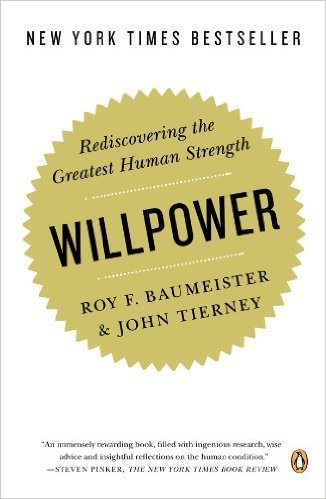
Recommended book: Willpower: Rediscovering the Greatest Human Strength
What it will teach you:
The science of willpower from the top researcher.Self-control vs. self-esteem.How to use willpower with money, productivity, and dieting. 2. KELLY MCGONIGALKelly McGonigal is a Stanford health psychologist who focuses on willpower as it relates to diet, mindfulness, and stress. She focuses less on the biology of willpower—as Baumeister does—and more on the psychology of it.
Key ideas from her work:
Want power.What fatigue really is.The evolution of willpower.
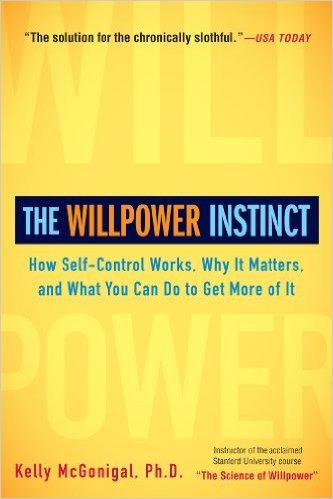
Recommended book: The Willpower Instinct: How Self-Control Works, Why It Matters, and What You Can Do to Get More
What it will teach you:
Where your willpower comes from.How to use it effectively.Simple changes in perspective that will give you more willpower. 3. ROBERT GREENERobert Greene is the author of several books that explore the principles behind power, mastery, and success. He is extremely good at taking abstract ideas and applying them in a concrete and powerful way.
Key ideas from his work:
The dimensional mind.The 10,000 hour rule.Overcoming weaknesses through purpose.
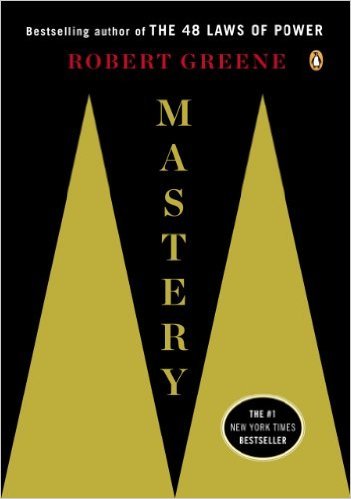
Recommended book: Mastery
What it will teach you:
The path to mastery taken by the world’s greatest masters across multiple fields.The principles of each master’s success.How to apply those principles to your life and attain mastery. 4. THE HEATH BROTHERSDan and Chip Heath are business professors at Duke and Stanford respectively. They write about the science behind behavior change, communication, and decision-making. Although they target business, the principles can be applied across a wide-range of goals.
Key ideas form their work:
The 10-10-10 rule.Listen to your best friend’s advice.The confirmation bias.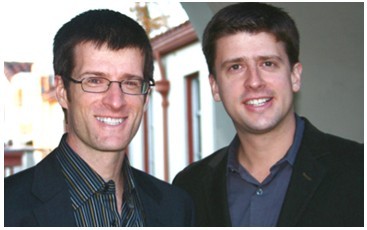
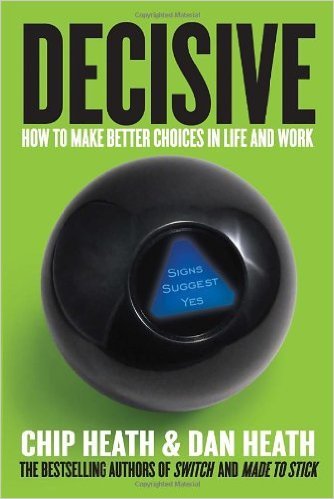
Recommended book: Decisive: How to Make Better Choices in Life and Work
What it will teach you:
Why the typical decision-making process is flawed.The factors that motivate us to make bad decisions.A simple process to overcome those factors and make better decisions.5. SUSAN CAIN
Susan Cain is a graduate of Harvard Law School and ran a negotiating consulting company with Fortune 100 clients. But, unlike many others in her field, she is an extreme introvert. Her misfit status led her to study the science behind introverts and extroverts and how we can make the best of our unique traits.
Key ideas from her work:
The value of self-awareness.See things from the other person’s perspective.
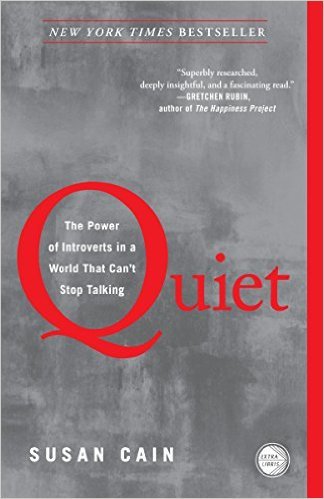
Recommended book: Quiet: The Power of Introverts in a World That Won’t Stop Talking
What it will teach you:
How to increase your self-awareness as an introvert or extrovert.The benefits of both traits and how to better understand each other.How to improve your willpower by embracing your trait, and how to prepare for those moments when you need to be the opposite. 6. CHRIS BAILEYChris Bailey loves productivity as much as I love willpower (maybe even more). He spent an entire year doing nothing but learning productivity methods from the top gurus and running experiments to see which work the best in practice. He shares all of his experiments, results, and lessons in his book.
Key ideas from his work:
Productivity = Focus + Energy + Time managementStop multi-tasking!
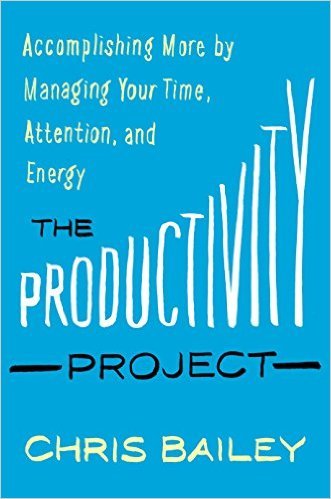
Recommended book: The Productivity Project: Accomplishing More by Managing Your Time, Attention, and Energy
What you will learn:
The productivity strategies that work best, and which are simply myths.Where you should focus your willpower in order to improve your productivity.How to accomplish more and create more free time to do what you really want. 7. AMY CUDDYAmy Cuddy is a professor at Harvard Business School and studies how nonverbal cues and snap judgments influence our behavior. From her, I learned the value of your body language and how it affects your willpower.
Key ideas from her work:
5 ways to overcome "impostor syndrome"How your body language affects your willpower.
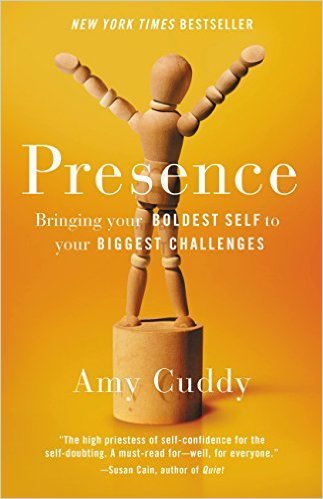
Recommended book: Presence: Bringing Your Boldest Self to Your Biggest Challenges
What you will learn:
The surprising role of body language on meeting your challenges.How your body language affects your energy and stress.How to bring the best version of yourself to situations when you need it most. 8. CHARLES DUHIGGCharles Duhigg is a reporter for The New York Times. He is the author who first introduced me to the science of willpower, which was the focus of one of his chapters in his best-selling book The Power of Habit. He writes about the science of productivity, habits, and success.
Key ideas from his work:
Keystone habitSmall wins
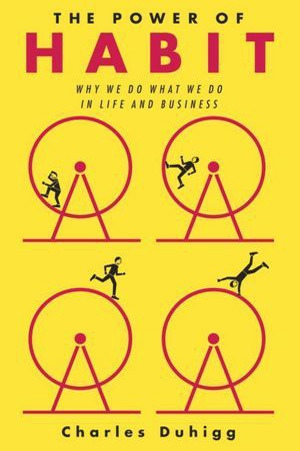
Recommended book: The Power of Habit: Why We Do What We Do in Life and Business
What you will learn:
How habits are formed.How great habits create more great habits.The impact of habits for individuals, corporations, and society. CONCLUSIONNo person is an island. If it wasn't for the work of the people above, I would not be in the position I am in today. Their work has helped me become a willpower superstar—and I hope they can make you one as well!
March 8, 2016
How Fear Kills Your Willpower—And How to Fight Back
I couldn’t believe my eyes. The towers that stood as a symbol of the iconic New York City skyline were up in flames.
People were jumping out of windows…
The streets were filled with emergency responders…
And almost 3,000 people died from the incident…
Even as a Canadian at the time, the images will forever be burned in my memory. And they justifiably instilled a sense of fear into millions of Americans. Americans who, unfortunately, would soon lose their lives.
Not because of the wars that followed…
Not because of another terrorist attack…
But by being afraid of flying and choosing to drive instead.
The chances of dying on a commercial flight is approximately 1 in 15,000,000.The chances of dying from a road trip is approximately 1 in 10,000.So when over 15 million Americans chose to drive instead of fly, it led to 1,595 deaths from car accidents that wouldn't have occurred if the people weren't afraid—a death toll equal to another tower going down. [1]
WHAT WE FEAR VERSUS LARGER DANGERSTerrorism and plane crashes are two of the most feared causes of death—and they are also two of the least justified.
Here are some yearly statics of what we fear vs. what actually kills us (U.S. statistics/year):
1. We fear—Planes: 50 deaths [2]
Bigger danger—Cars: 33,808 deaths [2]
2. We fear—Terrorism: 9 deaths [2]
Bigger danger—Heart Disease: 599,413 deaths [3]
3. We fear—Illegal Drugs: 17,000 all illegal drugs deaths combined [4]
Bigger danger—Alcohol: 88,000 alcohol-only related deaths [5]
4. We fear—Sharks: 1 death [2]
Bigger danger—Deer: 200 deaths [6]
5. We fear—Soldiers dying in war: 5,471 deaths [7]
Bigger danger—Soldiers committing suicide after war: 8,078 deaths [8]
Some pretty shocking statistics.
Not that our fears aren't warranted, every example does have a risk of death, but why is there is such a huge gap between what we fear and the bigger danger?
WHERE OUR FEAR COMES FROMIn his book, The Science of Fear, Daniel Gardner highlights many of these disparities and traces our fears back to the battle of our two minds—the primitive brain and the modern brain.
The primitive brain—aka the limbic system—is where your emotions, feelings, and basic instincts reside. It evolved to help us humans survive in the Stone Age by motivating us to hunt for food, conserve our energy, and fear things that might kill us.
These fears developed in a way that would cause us to act fast. In order to survive being attacked by a snake, for example, we would have to move quickly, without taking the time to think.
So rather than rely on rationality to avoid dangers, our brains evolved to connect fear with images, sounds, and feelings that we stored deep in our memories so we could rely on our instincts and act fast in order to survive.
Fast-forward to modern day, and our fears are still based in this part of our brain. So we still associate fear with images, with sounds, and with memories of the feelings we had when we saw these things. [1]
EXPOSURE = FEARGiven that we base our fears on images and feelings rather than on rationality, it is no surprise then that the media has played a big role in what we fear and what we don’t.
Every incident of terrorism is shown and analyzed by the media for days. But they don't show up to the hospital to report on the thousands who die of heart disease.
Every year there is a new illegal drug that the media calls an "epidemic." But they seldom cover the drug that actually is an epidemic—alcohol.
The same could be said for wars, plane crashes, and shark attacks.
Then when you're exposed to the vivid images of people dying from terrorism, plane crashes, and drug overdoses they become burned in your memory. And the more you expose yourself to them, the more deeply entrenched they become.
Then because you can easily remember these images and associate them with the feeling of fear, you begin to believe that they are more prevalent and dangerous than they actually are. [9]
HOW FEAR KillS YOUR WILLPOWEROkay, so you may fear these things, but how does that affect your willpower?
There are 3 key reasons why fear kills the willpower of both you and society:
1. WE STRENGTHEN THE PRIMITIVE BRAINThe primitive brain is not only responsible for fear, it is responsible for cravings, for procrastination, and for pretty much every desire to indulge, give up, and take the easy way out. In order to override these desires, you use your willpower—which resides in the modern brain.
But the more you live in fear, the more you allow the primitive brain to be in control.
By watching the news, listening to fear mongering, and worrying about the future, you begin to strengthen the primitive brain.
Aside from making you even more afraid, this will also make you feel less in control of your ability to reach your goals. Simply by feeling as if you are powerless to control your destiny, you will begin to lose your willpower to take action towards it. [10]
2. YOU SEE FEWER BENEFITS FROM THINGS YOU FEARIn 2010, a group of researchers found something remarkable—MDMA (ecstasy) could be used to save lives. Specifically, it could be used to treat post-traumatic stress disorder (PTSD) which is the main cause of the soldier suicides cited above.
In its first human trial, 83% of participants were cured through use of MDMA, compared to a 25% rate with traditional treatments. Combine that with the current soldier suicides cited above, and it's reasonable to say that MDMA could potentially save over 6,000 lives per year in the U.S. alone. [11]
But when we hear about ecstasy we think about all of the negative consequences of using “hard drugs." So our gut reaction tells us that the benefits can't possibly be worth the costs.
So despite its clear indication of success over traditional treatments, scientists were denied funding to continue this research by lawmakers who stuck by their claim that MDMA has no medical benefit. Which caused the leading researcher, David Nutt, to say:
“We haven’t seen a society dismiss science like this since the Catholic Church banned the telescope in the 1600s.” [12]
This same phenomenon happens on the individual level as well.
If you fear public speaking, you will downplay the benefits of sharing your ideas with an audience.
If you fear criticism, you will dismiss the benefits of sharing your work with others.
If you fear being rejected, you will ignore the benefits of asking someone on a date.
It doesn't matter how great the benefit to yourself or society, the gut reaction of fear will cause you to irrationally dismiss it. [1]
3. WE EXERT OUR WILLPOWER ON THE WRONG THINGSThe huge gap between what we fear and the larger danger has led us as a society and individuals to spend an insurmountable amount of time, energy, and resources on things that we fear, rather than those that we should fear.
Trillions of tax dollars spent.
Billions of man hours worked.
And countless time spent worrying about things that pose us less danger.
One of the most important concepts in willpower is knowing where to focus it. Your time, money, and willpower are all finite resources. And given the data above about what you are likely afraid of, versus what you should be afraid of, you may exert your willpower on the wrong things.
From a strictly scientific standpoint you should:
Focus on eating right and exercising to fight heart disease, not worrying about terrorism.Focus on getting on a plane, not worrying about crashes and choosing to drive instead.Focus on being cautious of deer on the road, not on worrying about sharks in the water.And if the goal truly is safety—both at the individual and societal level—then we should focus our willpower on the things that will result in the greatest amount of lives saved. Not on the things that give us the strongest emotional reactions. [13]
what to do about fear"I'm just glad I'm old. I'm worried about what will happen to the world in your lifetime."
My stepdad told me those words in 2012, but I didn't understand why. By all major measures, 2012 was the best year in the history of the world. And 3 years later it has only gotten better!
Violent crime has steadily declined...
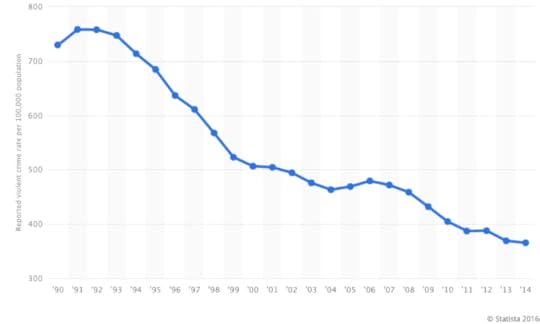
Global hunger continues to drop...
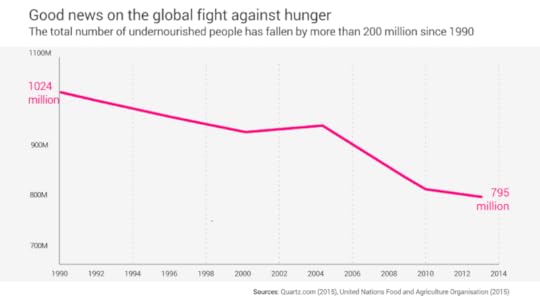
And the amount of people in extreme poverty is rapidly lowering!
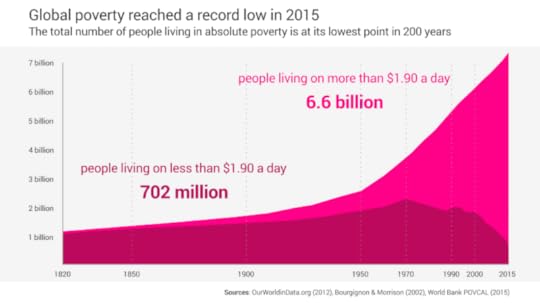
Not to mention the advances in education, technology, and health that have taken place. By almost every measure, we are the healthiest, wealthiest society that has ever lived. We still have problems, of course, but there is more cause for optimism now than ever before.
So why do my stepdad and countless other people think we're doomed?
Because fear sells—especially on the 24/7 news channels. There's no drama in the story of violent crimes going down. There's no intrigue in the plummeting cost of education thanks to the Internet. Even as an optimist about the future, I would be bored by those stories.
So we get stories of crime creeping into safe neighborhoods...
Announcements of new drug epidemics that endanger your children...
And a new cause of cancer that could be in one of your household items!
Do not let these stories kill your willpower.
Instead, understand how fear works. The more you take in the images, sounds, and feelings of terrible things happening in the world, the more you will allow fear to strengthen your primitive brain and weaken your willpower. [1]
I'm not saying you should ignore current events, or deny the brutal facts of dangers in the world.
Simply pause, recognize the negative bias, understand that fear will weaken your willpower, and remember that, in general, the world is heading in a very positive direction. Then allow yourself to feel grateful that you get to be a part of it.
CONCLUSIONThere is a gap between what we fear and what we should fear. This gap is due to where your fear comes from. Your fear comes from images, sounds, and feelings—not rational thought.
Fear kills your willpower by giving control to your primitive brain, diminishing the benefits of something you fear, and by causing you to focus your willpower on the wrong things.
You can fight back against fear by avoiding scare stories, understanding the negative bias of the media, and remembering that you are living in the healthiest, wealthiest time in the history of mankind—and it is only getting better.
March 3, 2016
10 Lessons in Willpower From Publishing My First Book
I’ll never forget that moment.
I had been studying the biographies of successful people for years trying to find the key factors that led them to greatness. I found things that were pretty obvious indicators of success—dreaming big, setting goals, working hard, and so on...
But these alone could not be the answer I was looking for.
After all, there are millions of dreamers, goal-setters, and hard workers out there who don’t become a billionaire author like J.K. Rowling or a bodybuilding champion like Arnold Schwarzenegger.
So what was the difference?
After pondering the answer to that question for a long time, I came across something called “the science of willpower” in a chapter of Charles Duhigg’s book The Power of Habit. As I read through it, I began to feel a rush of excitement I couldn’t put into words.
I finally found the answer—and the topic of my first book.
However, the journey from that answer to The Will of Heroes being published was far from easy. I struggled creatively, financially, and to simply stick with the book until it was done.
Here are the 10 biggest willpower lessons I learned along the way:
1. DREAM BIG, BUT START SMALLWhen I set out to write The Will of Heroes, I had big dreams for the book.
I wanted it to be just as good as the books I’d read by my favorite authors like Robert Greene, Kelly McGonigal, or the Heath Brothers. But I had a long way to go to get to that level.
Besides the need to work on my writing skills (I had yet to even start a blog), I also needed to read dozens of biographies, articles, books, and scientific studies in order to even think about reaching their level of quality.
That list seemed daunting in itself—and it doesn’t even include actually writing the book!
So I didn’t let myself get overwhelmed. Once I knew the scope, I forgot about the huge task and focused simply on the next small step I needed to take. And that was learning how to write in the first place. [1]
2. WORK ON YOUR WEAKNESSESFor most of my life, I have been a terrible writer. In fact, I doubt any of my teachers growing up would believe me if I told them that I now write for a living.
But writing this book was my dream—so I needed to improve.
So I learned everything I could about the craft of writing (this book truly helped). Then I created a deliberate practice routine where I took the key ideas from a passage of an author I admired, tried to express those ideas by writing my own passage, then compared them.
This was a long, frustrating, and quite simply boring process. But it was incredibly effective (see an old post for proof) in helping me overcome my weakness as a writer and create the quality of book that I wanted. [2]
3. CONSISTENCY IS GREATER THAN INTENSITYOne of the biggest problems we face when trying to accomplish a huge goal or project is trying to achieve it through intensity.
We set a plan to exercise every day, cut out all carbs, or start waking up an hour earlier every morning. This intensity is then followed by an equal crash when our willpower muscle can't keep up anymore.
This is the big mistake I made while writing this book as well. At first, I would wait for the right “inspiration” to write, and write up to 3,000 words in one sitting. Then I’d follow that with days, weeks, even months without writing anything because it didn’t “feel right.”
Then I learned one of my most important rules to-date—real writers write everyday.
So I did. I shifted my focus from intensity to consistency. And I found that, even on my least inspired days, as soon as I began writing I immersed myself in the task and finally made real progress.
4. FIND YOUR INSPIRATIONNo matter what your goal, there is someone out there who has achieved it. They may have even had similar circumstances to you. And learning their story is powerful.
They can be your inspiration when you’re going through hard times, because they are proof that achieving your goal is possible.
Personally, my inspiration was J.K. Rowling, author of the Harry Potter series.
It took Rowling 5 long years to write the first Harry Potter book. And during those years she was a single mother living on welfare. She battled doubt, fear, and even depression, but she still mustered the willpower to write Harry Potter—and write it with excellence.
Thinking about her story inspired me to keep pushing, to keep writing, and to never sacrifice quality. Because I knew if she could go through what she did, I could overcome any challenges that I was facing as well. [3]
5. EMBRACE BOREDOMWriting this book has been my most passionate project to date. I truly enjoyed learning about the heroes, connecting the science, and telling their stories in practical terms.
But not all aspects of writing were glamorous.
I spent countless boring hours practicing my writing, doing citations, and ensuring the manuscript adhered to proper formatting. These were extremely boring, but also extremely important. So I had to learn to embrace the boredom in order to create a quality book.
Usually we don't give up on goals because they're hard—we give up on them because they're boring. It's boring eating vegetables, boring running on the treadmill, and boring studying textbook information.
But these boring moments are incredibly important. And embracing them will make all of the difference in sticking with your goals to the finish.
6. SEE CRITICISM FOR WHAT IT ISNo matter who you are, what you do with your time, or how much you “put yourself out there” you will face criticism.
One of the most important things I learned when I started putting my work into the public eye was how to use the proper perspective with all of the criticism I receive. In general, I have found three groups of people who will criticize you:
People who are simply trolls and feel better about themselves by criticizing you. People who have different values than you and will criticize you because they simply do not understand you.People who can help you improve your work—or at least offer a different perspective.Criticism from the first two groups can be ignored, but the third group is vitally important.
Some of the biggest improvements that I have made to this site and to my writing came from criticism. And I’m grateful because the final product of my book is now higher quality because I received that criticism.
However, you must try to understand which group is criticizing you. Do not change your work because of a troll, and do not ignore the criticism of someone who is pointing out an area that you need to improve upon.
7. BEWARE Of THE DOWNSIDE OF PRIDEWhen I first set out to write the book, I wanted to be published by a major publishing house. After all, the idea of becoming a “published author” is a huge accomplishment—especially these days.
But when I had a fully written manuscript, I decided to at least consider the self-publishing process. So did the research necessary to compare the two.
As a first time author, with an already established brand, and well-established audience of 40,000 subscribers: self-publishing was the clear choice.
But I didn’t want it to be.
I thought of self-publishing as “beneath me” even though it was the better choice for many reasons. So I began searching for confirming evidence that would justify my vanity. Luckily I snapped out of it at some point and realized I was adhering to the confirmation bias.
Pride can be a powerful ally in achieving a high standard, but it can also blind you from confronting the brutal facts and ultimately making the best decision.
8. YOU CAN'T DO IT ALONEAs many of you know, the funding for this book came from a Kickstarter campaign I ran last fall.
With 10 days left in that campaign, it seemed like there was no chance I was going to raise enough money to publish the book. But then I decided to open up to others, share my story, and even start helping people like me who were also struggling with their Kickstarter campaigns.
Once I stopped focusing on myself and started to focus on others, everything started to change. I helped others with their campaigns, got great advice from them in return, and developed a deeper connection with readers because I showed vulnerability.
My focus on willpower has mainly been on the individual. But that experience showed me that no matter what the goal, you aren't alone. Your social group can be a powerful ally. [4]
9. FINISH WHAT YOU STARTEDThroughout the project I faced plenty of temptations to give it up.
And these temptations weren't always to quit because it was too hard. Most of the time, I was tempted to simply "put the book off" because there were other, seemingly more exciting, opportunities to do something else.
Unfortunately, I gave into these temptations a lot. I started researching irrelevant topics, focusing on marketing, and even starting a new book at one point! Then I remembered a lesson from Steve Jobs: win the battle you are already in.
We all begin our goals excited, but then we hit the middle of the journey where it becomes hard, tedious, and boring. So we start a new exciting goal...and we never finish any of them.
The next time you become tempted by the lure of a new and exciting goal, pause. Think about your current goals and ambitions. Remember that what you’re working on right now once seemed just as exciting—and finish what you started.
10. REMEMBER YOUR PURPOSEFrom the start of this project all the way until the finish, there was one thing that pushed me through all of the good times and bad: my purpose.
Across the world, people have a daily struggle to do the hard work necessary to achieve what they really want in life. And simply understanding how willpower works, and how to master it, can make a big difference.
So when I felt like skipping a day of writing, taking shortcuts, or giving up entirely, I reminded myself of that purpose. And remembered that what I was working for was worth it.
I have studied the paths of some of the greatest heroes, I have learned some of the most important principles of willpower, and I am confident in saying that there is no greater boost to your willpower than a truly great purpose for you to use it. [5]
February 25, 2016
How to Endure the Long Journey to Your Goals by Embracing the Stockdale Paradox
Whack!!
Jim Stockdale was taking yet another beating from his captors in the Hanoi Hilton—one of the most brutal prisoner-of-war camps during the Vietnam War.
Just hold on for 5 more minutes…
Stockdale thought to himself. He didn’t know how much more he could take, but as the highest ranking officer in the camp, he had to set an example. Earlier, he devised a step-wise system for he and his men to will themselves through the torture.
No one can withstand torture forever, but any information given could cost the lives of troops on the outside. So to minimize the damage, he instructed his men to give up a certain amount of information after a certain amount of minutes.
The minutes ticked by slowly, but he made it to the milestone.
After being released back to his cell, Stockdale heard elaborate taps from the cells around him. Each cell was small, concrete, and windowless—a tactic used by the captors to instill isolation in the prisoners and prevent them from working together.
However, Stockdale was able to devise a tapping code in order to communicate with his men and fight back against the isolation his captors tried to instill in each of the prisoners.
Stockdale tapped back to his men, letting them know he was okay. Then he tried to ignore his throbbing pain as he settled in for yet another night in his cold, damp cell. But as he lay there beaten and numb, his spirit was as strong as ever.
He still had faith that one day he was going to get out of there. He knew he was going to prevail in the end and even turn the experience into the defining moment of his life, which, in retrospect, he would not trade. [1]
OPTIMISM VS. FAITHStockdale told this story to author Jim Collins in his book, Good to Great. Collins had recently read Stockdale’s memoir of the event, In Love and War, and was depressed by Stockdale’s story.
Collins had trouble even reading about Stockdale getting beaten, not receiving medical treatment, and enduring life in solitary confinement for almost 8 years—despite the fact that Collins knew the happy ending to the story!
How did Stockdale not only endure the horrid events he wrote about in his memoir, but endure them without knowing that he would ever make it out?
As Stockdale recalled, he never lost faith in the happy ending. He never wavered in his belief that he would get out and actually become stronger from the experience.
Completely baffled by his response, Collins asked, “who didn’t make it out?”
“Oh that’s easy, the optimists.” Said Stockdale, “they were the ones who said, ‘We’re going to be out by Christmas.’ And Christmas would come and Christmas would go.
Then they’d say, ‘We’re going to be out by Easter.’ And Easter would come, and Easter would go. And then Thanksgiving...and then it would be Christmas again. And they died of a broken heart...
You must never confuse faith that you will prevail in the end—which you can never afford to lose—with the discipline to confront the most brutal facts of your reality, whatever they may be.” [2]
THE STOCKDALE PARADOXThis mindset is what Collins later called "the Stockdale Paradox."
Jim Stockdale genuinely believed that he was going to get out of that concrete cell. But he never allowed that faith to cloud the terrible reality of his situation.
If he was going to achieve his happy ending, he was going to have to endure pain, suffering, and isolation from everyone and everything he loved—not just for weeks or months: but for years.
So he confronted those brutal facts. When he came to terms with his situation, he was able to devise the coping strategies that would help he and his men endure life in the camp.
Communicating through tapping on the concrete, setting milestones to reach while being tortured, and even finding a way to secretly send letters to his wife back home, were all incredibly difficult systems to create.
But he knew he was going to be there for the long-term—and these systems were necessary.
Meanwhile, think about the pain that the optimists must have gone through. They focused all of their willpower on just making it to Christmas when they believed they would be saved, then had to face the painful reality that they weren’t going anywhere.
Eventually they simple could not muster the willpower to persevere any longer, and died of a broken heart.
USING THE STOCKDALE PARADOX TO REACH YOUR GOALSIn pursuing goals, most of us act like the optimists. We believe that we can achieve big results, fast!
We can lose 10lbs in a month…
We can get flat abs in 3 months…
We can learn a new language in 6 months…
Then the tiring work comes. We try to do too much, too fast and start to procrastinate our unrealistic schedules. Then the months pass by with little progress to show for it. And, like the optimists, we become demoralized.
Instead, you must confront the brutal facts of the situation.
Losing weight is a long, hard, and unpredictable road…
Flat abs require much more than a new sit-up routine…
Learning a new language is boring, tedious, and frustrating…
Yet also understand that none of these goals are impossible to achieve! Do not let the brutal facts discourage your faith that in the end you can achieve your goal. Instead, look for ways you can fight back against these brutal facts to make the process more achievable.
Take a realistic assessment of what you were able to accomplish in the past. What has worked for you? What hasn't worked for you? Given your past accomplishments, what is a realistic timeline for accomplishing your next goal?
Also, what parts of the journey to your goal will be the most difficult or most boring? How can you persevere through those hardest tasks to make the process more enjoyable or achievable?
In order to defeat challenges, you must truly know what your up against. So don't discount the brutal facts of what it will take to reach your goals—find a way to overcome them. [3]
CONCLUSIONJim Stockdale faced a harsh reality. He was tortured, beaten, and isolated in solitary confinement—not just for weeks or months, but for 8 years.
In order to endure this harsh reality for so long, he had to genuinely believe that not only would he get out of the POW camp, but that he would become a stronger person because of it. However, he never let that faith cloud the brutal facts of his reality.
To achieve your goals, you must embrace this "Stockdale Paradox" as well. You must genuinely believe that in the end you will be able to reach your goal, but never let that faith cloud the difficult, tedious, or even boring tasks you will have to accomplish along the way.
February 18, 2016
Feel like an impostor? Me too. Here’s my personal story and 5 ways to crush that feeling
Imagine sitting at a poker table with cameras and lights in your face, millions of people watching you live on ESPN, and the chance to win $2 million. The pressure is on.
Oh, I forgot to mention you also feel like the “odd man out” because you’re not like the other competitors.
In 2004 this odd man out was actually a woman named Annie Duke.
She was the first woman to win a multi-million dollar payday in poker. She beat out tough competition, including her own brother and Phil Helmuth, a poker hall of famer who has won the World Series of Poker 14 times! In a dramatic last hand, Annie Duke beat Phil to win the $2,000,000 pot.
I know what you’re thinking…”Wow, she must have a ton of confidence and believe in herself so much in order to bluff, strongarm and battle stiff competition to win first place.”
Well, you’d be shocked about what she said about that experience in a recent NPR interview :
“I went in there with this incredible fear that my play that was in front of cameras...would prove that everybody was right and I was actually a terrible player, despite the fact that I had spent the last 10 years making my living playing poker at the highest levels of the game...that I didn’t really deserve to have ever won anything and I was bad and I had just gotten lucky and everyone would know it.”
I couldn’t believe that a poker winner who won $2 million would ever feel this way.
But I can relate. Can you?
HERE’S MY STORYA few years ago I was also at a poker table. I was at an invite-only event for startup founders with some of the most successful startup entrepreneurs surrounding me. I was the only female there. Yes, I had my own startup but it was nowhere near the levels of the others.
I’m also not a poker player, I had no idea what I was doing. Thankfully the buy-in was only $20.
Needless to say, I felt like an impostor. Sure, I had raised $100,000 in capital, but as I was sitting at that table all I kept on thinking was “How the heck did I get here? I don’t belong here, these guys are way ahead of me and are worth millions of dollars!!"
But I didn’t just feel like that at the poker table. Those thoughts haunted me...all the time.
When I was pitching my business, when I’d wake up in the mornings, when I’d be at networking events where I felt people were more important than me...it was constant.
I’ve gotten better at it over the years, but it still hits me. I’ve recently joined the blogging world as a communication coach and there are still times where I think, “People actually listen to me?! Why??” even though I have helped numerous students transform their lives.
Like Annie, I feel like an impostor
WHAT IS IMPOSTOR SYNDROME?In 1978 two social psychologists, Pauline Rose Clance & Suzanne Imes came up with a definition for it as a feeling of “phoniness in people who believe that they are not intelligent, capable or creative despite evidence of high achievement.”
If you’ve ever felt like you didn’t truly deserve a promotion or that the reason you’ve gotten to where you are is because of a mistake, luck or other things outside of your control you’ve suffered from impostor syndrome.
But here’s the problem with constantly feeling like an impostor… you will act as if you are one and those actions will strengthen that false belief.
As Tony Robbins says, “the story you tell is the life you live.”
Coming from someone with firsthand experience, impostor syndrome is not black and white. It’s a feeling that hits you in certain moments: when you get promoted, when you’re about to speak publicly, or when you’ve just achieved something important.
But for some people, those moments happen way too often.
To help you fight this, I want to share five action items that have helped me crush my feelings of being an impostor.
5 THINGS YOU CAN DO TO BEAT IMPOSTOR SYNDROME1. KNOW THAT YOU'RE NOT ALONEAdmit it, did you find some solace in hearing my own impostor story? That’s okay and totally normal. The feeling of sharing a burden with other people can often make us feel more “normal” and not as guilty for feeling a certain way. Feeling like an impostor can be isolating and lonely.
Now if you’re reading this blog, you’re likely an ambitious person and therefore more susceptible to feeling like an impostor.
Suzanne Imes the researcher who coined the term says that, “the impostor phenomenon seems to be more common among people who are embarking on a new endeavor.”
But the good news is you're not alone. The truth is in the statistics.
Firstly, impostor syndrome affects both men and women to an equal degree and this has been shown in study after study. Even people who are successful by society’s standards also feel like impostors from doctors to two-thirds of incoming Harvard Business school students, and other high-level professionals.
Action Item #1: Connect with Like-Minded PeopleConnect with others who are going through what you’re going through. For example, if you’re a startup founder, connect with other startup founders who are at the same stage as you are. I’ve recently joined a community of ambitious bloggers, many of whom are at the same stage of their online business that I am and it has been comforting to realize that they struggle with a lot of the same things I do!
If you’re not sure where to look, you can try meetups, networking events or even online forums to connect with other people who may feel the same way you do and have the same obstacles you do.
Finally, look for someone who was once at your stage but has succeeded and pick their brain. You can find a mentor who can coach you and share their own experiences about how they used to feel when they were at your stage. You’ll be surprised to hear that they probably once felt (or even still feel) like an impostor.
Here are some helpful sites:
meetup.comLinkedIn GroupsFounderDating2. STOP COMPARING YOURSELF TO OTHERSYour brain is wired to be social. So much so, that even in rest your brain is in social cognition mode. Leading UCLA neuroscientist, Matthew Lieberman defines social cognition as “thinking about ourselves, others and relations of ourselves to others in our world.”
Meaning that even during rest, your brain is thinking about social standing, how you're perceived and how you compare to others!
There are two types of comparisons we make.
Upward social comparisons – are when we compare ourselves to people who we perceive to be better off than us. This may cause frustration and jealousy, but it can also serve as a motivator like when you put a picture of a fit person on your fridge to encourage you to eat better and exercise. Downward social comparisons – are when you compare yourself to someone worse off than you. They may have fewer resources than you or may be going through tougher times. Generally, doing this will increase your self-regard and make you feel better.I’m going to assume that you fall into the “upward social comparisons” category. But how can you blame yourself? Social networks make it so easy to compare.
There’s your friend Franky who’s taking a private jet to Vegas, Lisa who has a beautiful home and just had her second flawless child and Jerry the globe-trotter who’s posting photos from his amazing trip in Florence.
The problem is that people only bother posting the best images of themselves on social networks.
You rarely see posts about how someone just worked a 15-hour day, woke up at 6am to hit the gym or toiled on their e-book for 8 months….what you do see is the post about how their company just raised $10 million dollars, how someone lost 20 pounds or the how the book launch just went viral.
Spending time on social networks can actually affect your mood and how you feel about your life. This study showed that more than one-third of respondents reported predominantly negative feelings after using Facebook. They were also more likely to feel envious and experience lower levels of life satisfaction.
Action Item #2: Limit Social MediaIt’s a lot easier said than done to stop comparing yourself to others, but let’s take one small action step today that can make a huge difference- limit your time on social media.
Timebox it- Only allow yourself a certain amount of time on social networks per day. You can use apps like RescueTime or MinutesPlease to track and limit your time on social networks. Get specific set a realistic goal like only giving yourself 20 minutes per day to peruse Facebook.Add some friction- try deleting the social networking apps from your smartphone, this will add a barrier (the step of going to your computer) to get your “social media fix.” If that’s too drastic, one small adjustment you can do is drag and drop your social networking apps on the very last page of your smartphone screen, forcing you to swipe a few more times than you usually do to access them.Stop cold turkey- If you’re totally sick and tired of social networks, you can always suspend or deactivate one of your accounts. It may be too hard to delete all of them, so choose the one that tempts you to compare yourself to others the most.3. GET CLEAR ON VALUES TO DEFINE YOUR OWN SUCCESSGetting clear on what matters to you most will help you create your own definition of success, rather than relying on what other people perceive as success.
Launching my new blog has been an awesome experience for me, personally and professionally. But when I look at others in my field who are making 6-7 figures, it’s easy to get discouraged and feel like a phony. But when I channel some of my values--specifically helping others, I fight off those feelings of inadequacy and focus on doing great work that others can benefit from (which is my top value).
In an interesting study by Crewel and Sherman (mentioned in Amy Cuddy’s book called Presence), subjects were asked to speak publicly in a socially anxious-ridden environment. There was a panel of judges scoring the subjects and they were instructed to come across as stern and unfriendly. The subjects were then asked to count backwards from 2,083 in intervals of 13 while judges were barking at them to go faster!
Prior to the experiment, some of the subjects were randomly selected to practice self-affirmation by writing about a core value that was important to them, why it was important, and a story about it.
The other participants were instructed to write about a value that wasn’t particularly important to them.
To test stress levels they tested saliva samples of the subjects for cortisol (the stress chemical), and those who wrote a self-affirming story showed no increased levels of cortisol and significantly lower levels of cortisol compared to subjects who wrote about a meaningless value.
They were able to replicate a similar study with university students and mid-term exams.
The university study also surveyed students prior to the exam about social judgements i.e. “I worry that people will think I’m intelligent if I do poorly” or “I often worry that people will dislike me.” It turns out that students who worried the most about being judged benefited the most from affirming their own values before anxiety-ridden moments.
The takeaway is that understanding and reflecting on your personal values can reduce the anxiety that you may feel by being an impostor. Getting in tune with your values adds to your self-definition. Being secure with who you are and what your values are, will shield you from relying on others to pass their own judgements on you and create your own definition of success.
Action Item #3 Define your ValuesOne of my favorite exercises for getting clear on your values comes from Tony Robbins’ book, Awaken the Giant. He explains two types of values that dictate the direction of your life.
Move toward values - pleasurable emotional states that you want to get to like happiness, love, security, success etc
Moving away values - emotional states you want to avoid like humiliation, fear and insecurity
List out your top 10 move toward values, then rank them 1-10List out your top 10 moving away values, then rank them 1-10Analyze the 20 values and they way they’re ranked. Ask yourself if those are the values that you need (and in that order) to achieve the type of life you want.If you need to, reorganize them the way they should fit in order to build the type of life that you want to buildIs there a mismatch? Are there values that you realized you forgot the first time around that you only remembered when you thought about the life that you want?
For example if you want true love and your #1 moving away value is vulnerability, then you better reasses either your values or what you really want because being vulnerable is inherent in finding love!
Once you begin to realize what values matter most to you, you can leverage them when you feel like an impostor. You can do what the subjects did in the study and write about your #1 move toward value and why it’s important to you when you begin to feel like a “phony.”
Action Item #4: Give yourself Credit by Reflecting on Past SuccessWhen you’re done ranking your values, think about moments in the past where you experienced success. It could be that time you made a tight deadline or a time where you feel like you made a meaningful impact on the world. Whatever those successes are, vividly imagine them and write them down.
Reflecting back on times where you felt like you achieved something will help you beat feelings of impostor syndrome and feel confident in your self-definition. You can also refer to this list when you begin to feel down to channel the skills and traits that you embody.
4. GET GRATEFULWhen you feel like an impostor you see everything with a negative lens. You begin describing yourself as things you’re NOT. “I’m not smart enough, pretty enough, brave enough…” I could go on and on.
When you think about all the things that you’re NOT or the things you don’t deserve, you forget about the things that you DO have .
Suppose you’re a new entrepreneur, just being thankful for the opportunity to be creative, impact the world and change other people’s lives is something to be grateful for!
Focusing on the things that you DO have will cause a major perspective shift. For one, it will put you in a positive frame of mind and secondly, it will distract you from feeling like a “phony” and focus on all the incredible things you have in your life.
Being grateful has been proven to be a keystone habit.
Charles Duhigg defines a keystone habit as “small changes or habits that people introduce into their routines that unintentionally carry over into other aspects of their lives.”
Numerous studies have shown that feeling grateful will improve other areas of your life and also allow you to feel more comfortable and happier with yourself. Gratitude has been shown to improve physical health, overall happiness, reduces stress and makes it easier to cope with trauma but most importantly studies have shown that it improves self-esteem.
Earlier we talked about downward social comparisons, something we usually don’t do because we’re too busy comparing ourselves to people who have more.
But downward social comparisons can actually help improve self-esteem especially when you experience major setbacks. Part of that downward comparison includes being grateful for the things that you have that others don’t. Think about all that’s going on in the world, the truth of the matter is if you have access to clean water, a roof over your head and a computer to read this on….you’re pretty lucky.
Action Item #5: List out what you’re grateful forOne effective way I’ve made being grateful a habit in my life is by using the 5-minute journal. It’s an awesome way to quickly list what you’re grateful for every single day.
If you’re not into writing, you can take 5-10 minutes of your day to do a quick mediation and incorporate what you’re grateful for into the meditation. On Tim Ferriss’ podcast, Tony Robbins shared a three-phased approach to meditation where he thinks about things he’s grateful for, people he sends blessings to and the things he wants to achieve that day.
Here’s an example, step-by-step:
Schedule a time on your calendar either when you wake up in the mornings or before you go to bedTurn off all distractionsSit down with your legs crossed, eyes closed, dim or natural lights (if it’s night you can turn off the lights and light a candle). Take deep breaths in and out through your noseClose your eyes and think about:What you’re grateful for, the big and small things (i.e. your job, your home, clean water, the sun, your spouse, etc)
The people you send blessings to (i.e. family, friends, coworkers, even strangers you met that day!)
The 2-3 tasks that you want to get done today. If it’s night time, think about the 2-3 things you accomplished that day
Whether you write, meditate or reflect on what you’re grateful for, build it into a habit so it becomes part of your life and builds your self-esteem simultaneously.
CONCLUSION & FREE MINI-COURSEFeeling like an impostor can be lonely, debilitating and frustrating. But the good news is that you can take action to beat these feelings. By connecting with like-minded people, quit comparing yourself to others, getting clear on your values and practicing gratitude you can build your own self-esteem and give yourself credit for the things you’ve achieved.
This is a guest post by Katrina Razavi, communication coach & founder of CommunicationforNerds.com . If you liked this article, visit her site to sign up for a free three-video mini course called: Crush your Inner-Critic & Have Charismatic Conversations . It covers 6 secrets to social confidence, the #1 strategy to improve your life and how to have natural conversations….even if you’re socially awkward.
February 11, 2016
The Will of the Underdog—How Dr. Carl Hart Went From the Streets to the Laboratory
Carl Hart woke up to screams from his parents’ room.
Minutes earlier, his mother heard his father talking on the phone with the woman he was having an affair with, and she chose to retaliate by boiling a pot of maple syrup and flinging the burning hot liquid at him.
She then sprinted out the front door as her screaming husband sought to get revenge of his own. Luckily, he slipped on the wet grass outside giving her precious minutes to escape. 7 year-old Carl and his sisters were relieved. They knew if he caught her, he would’ve killed her.
After that day, Carl and his sisters bounced around different homes. Neither of their parents were fully capable of taking care of the children on their own, so they lived with various relatives on the mean streets of Miami.
Carl's neighborhood was not too far from the tropical paradise of South Beach. But he may as well have been in an entirely different world.
His world was filled with crime, domestic violence, and even days when there wasn't enough food in the fridge for Carl to eat.
And when Carl entered high school several years later, things seemed to get even worse—because crack cocaine hit the streets.
Crack was a drug rumored to be so powerful that it caused people to become extremely violent, and could make a person addicted in a single hit. So as the drug hit the streets, so did the police. They were going to crush this epidemic through force.
The StreetsDrugs were all around Carl. Crack cocaine, methamphetamine, marijuana, all of them. He ran with a tough crowd who used and sold these drugs regularly.
Like all kids, Carl and his friends cared about one thing: being cool. That was their purpose. And in their neighborhood, being cool was defined by how tough you were, how many girls you had, and whether you sold drugs.
However, while his friends were able to achieve high status through drugs, Carl found something else that gave him the same sense of purpose—becoming a top athlete.
He was a star basketball player at his high school and, even though he used drugs, he soon realized they would inhibit his performance as an athlete. So he experimented, then declined. His friends accepted this decision as they saw how important his performance was to him.
His status as an athlete was also what led Carl to do well enough in school to get into college. He fully admitted that he didn’t care about schoolwork; but he was determined to earn a scholarship to play college basketball.
Unfortunately, though, Carl was small for a basketball player and his coach made little attempt to get schools to recruit him. So he didn’t receive the scholarship offer he dreamed of, and he was crushed. His dream was dead.
What was he going to do now? He’d been bragging about getting out of Miami and going to college for years. If he stayed, he would have lost pride and status amongst his friends. So without the financial means to go to college, he enlisted in the Air Force. [1]
FINDING HIS NEW PURPOSEWhen he entered the Air Force, Hart was lost. He'd never thought of doing anything but be a professional athlete. So as he went through basic training, through time stationed in Japan, and through time stationed in England, he was searching for a new purpose for his life.
In England, he started the first college courses provided by the Air Force.
He was far from studious going into his classes, but for the first time in his life, he actually enjoyed learning. He was able to fully immerse himself in his schoolwork and his instructors started to see potential in him. His confidence as a student began to grow.
After a year of study, Hart returned to Miami in 1987 on leave and was horrified by what he saw.
He saw more guns in the hands of teens. He heard stories about the turf wars over crack. And he saw the escalation of police force: leading to more harassment, more arrests, and more children who would grow up with their parents in prison.
Things had changed. And Hart, like the rest of the nation, blamed crack cocaine. He saw clearly that the reason he was in college while his friends were in prison was because of the drug. He never got hooked on it, so he avoided its downward spiral.
His new purpose became clear to him—learn the cause of addiction, and save his community.
DIGGING DEEPERThis new purpose helped Hart fight through his huge learning disadvantage.
Even though he'd been accepted into college, his high school's standards were still far below the norm of what his college classmates were used to. But, despite being behind his classmates in some critical thinking skills, Hart's professors noticed the potential in him.
They encourage him to fight through his struggles by teaching him one of the most important lessons when it comes to science—you don't need to be a genius to be a scientist.
The best scientists, they claimed, were those who had the willpower to persevere on a problem, to keep digging deeper, and do all of the boring testing and research.
This motivated Hart. He knew he wasn't a genius, but he'd also proved he was capable of working hard. And the prospect of saving his community gave him the "want power" to fight through frustration and find the root cause of addiction.
Then, after 10 years of slow, consistent, determined progress, Hart got his Ph.D in neuroscience and psychology. In the process, he earned several research grants to begin studying the science of addiction.
He made it. He was now in position to fulfill his purpose and learn how to save his community. What he discovered, however, was not what he expected.
As I sum up in this article, Hart discovered that what he thought about addiction was completely wrong. Crack was not a "one hit and you're hooked" drug. In fact, only 9% of people who use crack actually became addicted. The 91% of others were usually normal, healthy people. [2,3]
And the reason why some became addicts has less to do with the drug itself, and more to do with why they are using it in the first place.
Which led Hart to wonder...what was the real reason he was in a lab instead of a prison cell?
DIFFERENCES IN PURPOSEWhen we look back at Hart's story, we can see that he had little shot of ending up in a laboratory.
His parents couldn't take care of him.
His living situation was terrible and constantly changing.
And with a C average, he wasn't exactly a genius destined to become a scientist.
However, he did have one thing that separated him from his peers—his purpose.
He found a purpose outside of drugs, and his friends found their purpose with drugs. While he was practicing, doing drills, and doing well enough in school to earn a scholarship; his friends were working to make their way up the gang hierarchy.
The fact that crack hit the street was actually irrelevant to Hart. He was bouncing around homes 7 years before crack. Neither of his parents were addicts, yet they still couldn't take care of him. And to keep his athlete status, he would have stayed sober with or without drugs available.
It was this status, too, that motivated him to leave Miami and join the Air Force. If he'd stayed, he would've been embarrassed by the fact that he wasn't good enough to live up to his talk of leaving. That hit to his pride would've been too much to handle.
Then when he enrolled in college, he was able to learn in a world free of the distractions of his old neighborhood. Then, slowly but surely, he grew his confidence as a student until he found another purpose worth fighting for—solving drug addiction.
Step-by-step he began unraveling the science behind addiction, working towards his purpose, while also earning his Ph.D and the respect of scientists everywhere. And after all this work, he became the first black tenured professor ever at Columbia University.
And today his purpose is speaking to people around the world sharing the real science behind addiction.
BEWARE THE DANGER OF THE EASY ANSWERIn a piece by CNN on a heroin epidemic taking place in New Jersey, they challenged Dr. Hart on his findings. They did a story on teenagers who were addicted to heroin and the terrible state they were in.
“What do you say to one of these 12 year-olds who are addicted to heroin?” asked the reporter.
Hart responded by saying, “I assure you, if you have a 12 year-old who is addicted to heroin, heroin is not the problem. There are clearly a lot more issues that the 12 year-old is facing. I need to know a lot more information before I could tell you to do anything.
If someone gives you a simple response to how you deal with that 12 year-old’s heroin problem that’s focused on the drug, they are a quack.”
A 12 year-old heroin addict has more problems going on than heroin. There are societal, parental, and psychological factors that led to this kid using heroin in the first place. And those are much more important than the pharmacological effects of the heroin itself.
But when we see a story like this, or we hear about crime rising in Carl Hart's neighborhood, our brain wants to find an easy answer. We watch stories like these, and place all of our blame on drugs, rather than seek a deeper understanding of why the problem is happening in the first place.
This is the same reason we seek easy answers to solving our goals.
The world is complicated. And in order to not be overwhelmed with all of it's complexity, your brain is wired to find simple, easy answers. That's why we search for the 8-week ab program or the 90-day diet, rather than seeking the reason why we are struggling with health in the first place. [4]
Whatever your goal, you must avoid this temptation and force yourself to dig deeper. Your willpower is much better used when it is spent finding "the cause of the disease" rather than "treating the symptoms."
CONCLUSIONThe human brain is literally wired to seek an easy answer to a difficult problem.
We see crime, we see violence, we see poverty, and we instantly blame a drug because it is a simple solution that seems to make sense. It doesn't require us to confront the brutal facts about why those people are turning to drugs in the first place.
And because we don't dig deeper to find the root of the problem, we don't learn why the Carl Harts of the world are able to overcome adversity, avoid joining a gang, and even push the human race forward by advancing our understanding of addiction.
Even my deeper answer of "purpose" is too easy. There were other young men on the basketball team, too, did they say "no" to drugs and crime as well? If so, did they become successful? Why or why not?
I don't know the answers to these questions. But the Carl Hart story shows that whatever problems we face as a society or as individuals, we need to avoid the temptation of the simple solution. We need to dig deeper—even if we may find some ugly truths buried underneath.
February 7, 2016
Finding Willpower With Chronic Illness [PODCAST]
It is hard to summon your willpower to do what you know you should.
It is even harder to do that when you are dealing with a chronic illness. But, as with everything else in life, making small improvements on a daily basis is what makes a difference in long-term success.
That's why I sat down with Sharon Sayler, host of Life Interrupted Radio, to discuss how to find willpower when you're dealing with a chronic illness.
*Originally published on http://www.blogtalkradio.com/lifeinte...
Willpower has been defined as the ability to resist short-term temptations in order to meet long-term goals. Isn’t it just self-control by another name? Nope… according to this week’s expert guest on The Autoimmune Hour on Life Interrupted Radio.
Willpower expert Colin Robertson helps us decode willpower and why it’s a powerful place to tap when you have a chronic illness. As a researcher of performance psychology, he will share with you the cutting-edge research on how to focus your mind, withstand temptation and reclaim your health and life. You will learn how to create the habit of health with his easy to implement techniques on:
How to set yourself up to succeed Why creating the right environment is imperativeEasy ways to overcome even the hardest daysWhat to do when the Zeignarik Effect intervenesHow to stay powerful, positive and resourcefulFebruary 1, 2016
How I Discovered That Everything I Thought I Knew About Addiction Was Wrong
The evidence was clear to me: cocaine, heroin, and amphetamines are so addictive that they are deadly.
In many experiments, researchers found that lab rats with access to these drugs would take hit after hit until they actually died.
The drugs, it seemed, were so addictive that the most important trait of any animal – the survival instinct – wasn’t even strong enough to stop them from continuing! [1]
These studies led lawmakers to do anything they could to keep these drugs out of the reach of the public. And they led me to begin studying the science behind addiction.
I wanted to learn why people turn to drugs, how they become an addict, and what role the science of willpower might be able play in overcoming that addiction.
Here is what I discovered.
WHAT I THOUGHT I KNEW ABOUT ADDICTIONGoing into my research, I had little knowledge of the pharmacology of drugs, nor how they actually lead to an addiction. I was only equipped with the general knowledge given through public service announcements, drug awareness ads, etc.
So the story was pretty clear to me—if I did something like shoot heroin twice-a-day for the next 2 weeks, the chemical hooks in heroin will be so powerful that my body will become physically addicted to it.
That addiction will be so powerful that the drug will become the most important thing in the world to me. I will then be unable to work, I will lose touch with my family, and I will ignore all of my friends. Nothing will be more important to me than one more hit.
Then my whole life will be in the toilet. And I will end up like the rats in the experiments; taking more and more until I finally overdose and die. A tragic story, and one I hope none of you have been exposed to.
However, as I began my research I learned a very different story from Johann Hari, who had been studying drugs and addictions for years.
This hypothetical story begins with me getting in a terrible car accident. I break several bones in my body and I'm rushed off to the hospital. When I arrive, doctors would immediately fill up my IV with tons of diamorphine.
Diamorphine is a strong painkiller that is essentially a pure form of heroin. And, with those injuries, I would actually be given much more than two hits per day.
There are millions of people around the world who have been through a story like this. So why, then, haven't I heard about a huge epidemic of hospital patients getting addicted to heroin?
At first, I thought that it was because the heroin on the street might be more powerful than you would get in the hospital. But it was actually the opposite! The heroin you get at the hospital is far better than street heroin; which is often mixed with other substances.
Yet millions of people have taken diamorphine without getting addicted. (Not to say there aren’t some people who get addicted to painkillers or other pharmaceuticals, but it certainly isn’t an epidemic.) [2]
But, of course, some people do get addicted to drugs. And those drugs can ruin lives.
So what is the difference between the heroin junkie and the hospital patient? I wondered. Is it possible that addiction is caused by something else besides the drug itself?
WHAT REALLY CAUSES ADDICTION?Then I came across a study that took place years after the initial studies on rats done by Dr. Bruce Alexander at Simon Fraser University in Vancouver. Dr. Alexander saw that the rats in those studies had not lived a “normal” rat life.

They were bread in isolated cages like the ones above. They didn’t have the opportunity to socialize, they didn’t have the chance to gather food, and the only interaction they had with others was being experimented on by humans.
This would be like us running experiments on someone who’s been institutionalized all of his life, and assuming that people in normal society will act in the same way.
Alexander wanted to see if "normal" rats would respond in the same way to drugs. So he created “Rat Park”. It was a much larger cage, where rats could socialize, exercise, and gather food in a much more “real” environment.
To see if these rats behaved differently, he separated them into 2 groups: one group was born and bred in the isolated cage and the other group was born and bred in Rat Park.
He offered both sets of rats the option to drink heroin-laced water or plain tap water. And they could drink as much as they would like over the duration of the experiment.
Like in the initial experiments, the caged rats instantly drank the heroin. But the rats in Rat Park only drank it occasionally. In fact, they showed a significant preference for the plain water because it would not disrupt their social behavior.
Simply because these rats had more in their lives than the drug itself, they used it in moderation. [3]
I was blown away by these findings. Was it possible, then, that addiction had more to do with one's environment than the drug itself?
ALCOHOLISM IN MY FAMILYUpon learning about Rat Park, I remembered a personal story about a family member of mine who became an alcoholic. This new perspective seemed to make complete sense as to why he had a problem, but no one else in our family ever did.
It wasn’t because he had a genetic disposition.
It wasn’t because alcohol is so addictive that people can’t use it regularly.
And it wasn’t because he lacked all willpower to control himself.
It was because he worked only 3 months a year in Northern Canada when the ice melted. The other 9 months of the year, he had nothing to do. He had no purpose in his life. No reason to keep a clear head. He was bored, and he filled the gap with alcohol.
He was like the caged rats in the first study. Those rats had nothing in their cage but the drug. So that is what they turned to. Because they didn’t have alternatives, they indulged over and over again.
Almost everyone reading this right now has access to as much alcohol as they can buy. But you likely have something else in your life that is more important to you than getting drunk. Your family, your work, your responsibilities.
So you make the relatively easy decision to stay sober—despite the fact that alcohol is actually more addictive than many illegal drugs. [5]
Most of us are like the rats in Rat Park. We technically can indulge in alcohol, but we choose not to in order to remain positive members of society. Just like those rats could indulge in heroin, but they chose not to because they wanted to remain social.
Which is why at this point I was not surprised to learn from Dr. Carl Hart, a neuroscientist at Columbia University, that 80-90% of people who use drugs, even the worst drugs, don’t get addicted. And those that do, are the ones who are isolated from society without alternatives. [6]
OUR CURRENT SOLUTIONRight now, the world's solution (especially in America) to people who use drugs, even those who are not addicts, is this:

Notice how that solution looks remarkably like this?

From a purely scientific standpoint, this solution seems backward, and may even make things worse. As we have learned, this isolation from society could, in fact, turn those drug users into drug addicts because:
They will spend months, if not years, in "the cage"With a drug offense on their record it will be harder to find a jobAs an ex-convict without a job, they may lack purpose in their lives and turn to drugs to "fill the gap" as my family member did with alcoholThus increasing the likelihood that they turn from a drug user into a drug addict.
To be clear, I'm not making the claim that drugs are not dangerous. Nor am I making the claim that drugs should be legalized. I am merely sharing with you the information I have learned in my journey to applying the science of willpower to overcoming addictions.
It is clear to me from this research that, in order to help drug addicts, a different solution is needed. One that helps addicts find purpose and meaning in their lives beyond drugs. And one that doesn't isolate them from the rest of us in "Rat Park." [7]
This, of course, is no easy task. It will require a lot of hard work and a lot of willpower.
CONCLUSIONUnderstanding is the first step toward improvement. With this project, I set out to learn the root cause of drug addiction. By learning the cause, I could learn how the science of willpower might play a role in helping addicts overcome their addictions.
What I found is contrary to what I'd been told all of my life.
Addiction does not strictly come from the drug, it comes from the environment. 80-90% of people who use drugs, any drugs, do not become addicted. Those who become addicted do so because they lack meaningful work, social support, or another purpose in their life.
Our current solution of sending drug users to prison may only increase their likelihood of becoming addicts as they are isolated from society. This research suggests instead that we should put our efforts towards helping them find purpose and meaning in their lives.
And maybe they'll go on to become as successful as these 3 known drug users.

